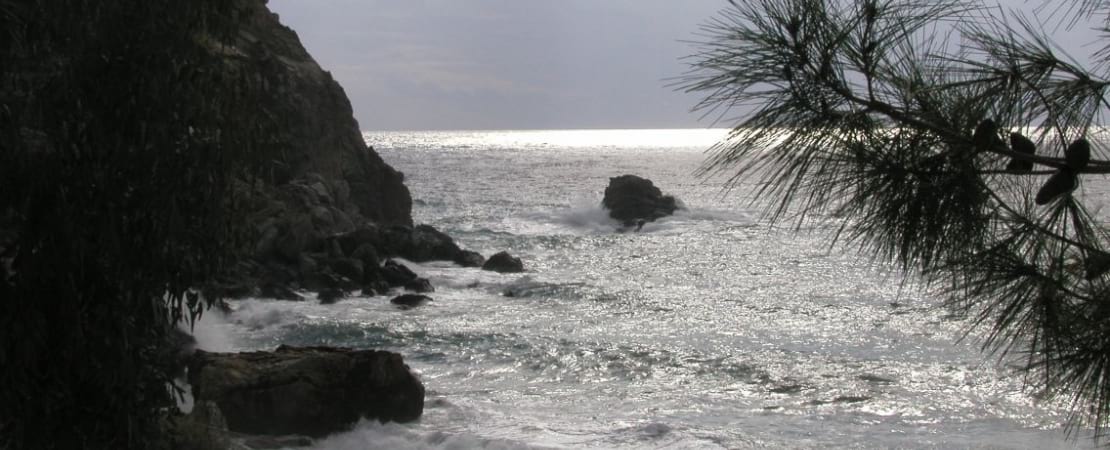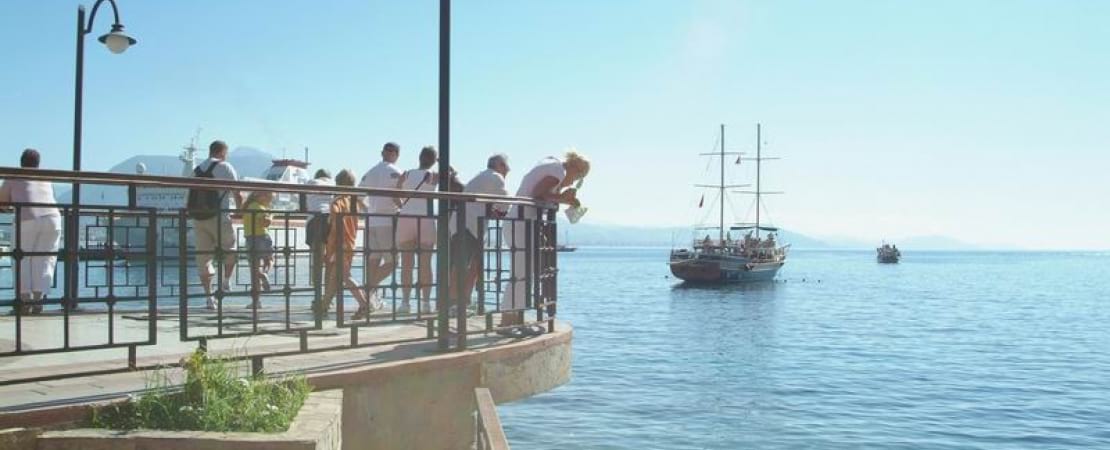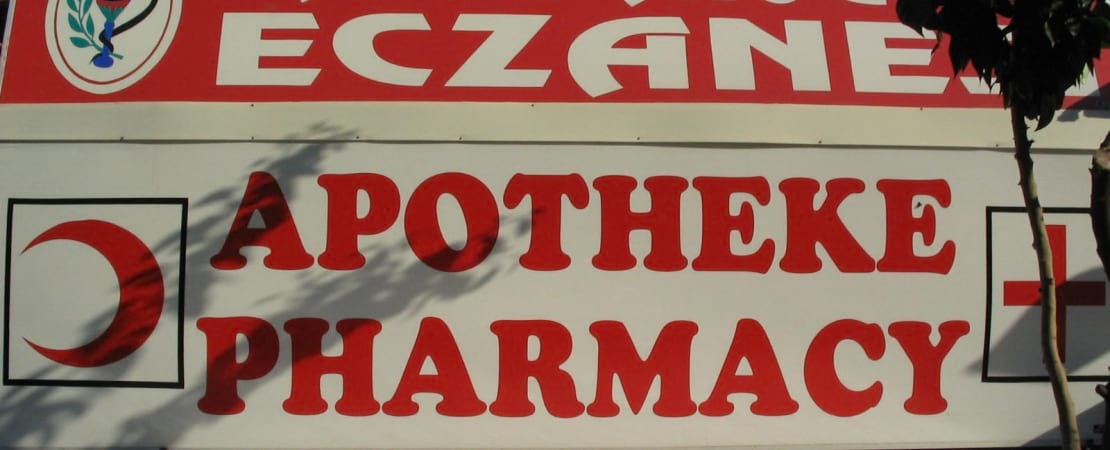When to Travel and where to Stay
Not sure what accommodation to choose or when to go - some answers are here.

The winter break benefits everyone
Often hotel standards in Turkey are better than similar hotels in other tourist destinations. Why should this be?
The explanation is very simple. Many other travel destinations have tourists all year round and the hotels therefore have neither the time nor opportunity to maintain or renovate their buildings. Furthermore the climate in many other places is often harsher than in Turkey. Despite the winter in Alanya being both wet and windy, the temperature almost never goes below 10 degrees celsius.
It is not just in the buildings that this winter change, without the many demanding tourists, is seen but in other areas as well.
Everybody, from hotel receptionists to taxi drivers to workers at the various tourist attractions, are with very few exceptions always happy and helpful.
They do not get tired of the many visitors as they can use the whole winter to relax and be with their families!

The Journey to Alanya
On the way to Alanya I started talking to a young man. He was from Turkeys largest city Istanbul but still looked very Scandinavian. He told me that he was a student and on his way to be a tourist guide.
He asked me what I did and I said I was a writer. He told me that his big dream was to be a writer too
We exchanged experiences, talked about our countries, about the people and the culture. Turkey has a fascinating history he told me. However authors were not always highly regarded by the regime.
This I of course knew already. There is more than one example of authors who have had to live in exile or have been restricted. Yasar Kemal, Fakir Baykurt, Nazim Hikmet - all authors who have criticised conditions in Turkey.
***
But I came to Turkey as a tourist in order to make up for the lack of summer weather in Sweden. I am making up for it now: 40 degrees in the shade and above 50 in the sun!
As the bus passed through the unfamiliar scenery I drank plenty of water. Cotton fields and little fruit stalls were to be seen. The fields were barren and dry. Houses which have never been completed were scattered here and there.
I turned to the author-to-be and asked him how many people would actually be able to read the books he was going to write. Suddenly he looked worried and replied that not all that many would.
***
In the small shop beside the hotel I quickly got to know the owner and his family.
He told me he had not been at school for many years. The shop was their school. They learn lots there not least foreign languages. Many Germans and Swedes come to Alanya.
Our conversation was a mixture of English, German and Swedish and the man gave examples of his self-taught Swedish.
Hello. How are you doing? Thank you very much. Welcome back
Several times I was offered apple tea. It was very warm in fact extremely hot but tasty. I always said thank you and accepted. Saying no would have been considered impolite.
***
Coming from Malmø to Alanya was a shock. Not least because the heat nearly kills you until you get used to it.
You also cross the street at the risk of losing your life. The drivers drive to the limit and they have their foot on the accelerator almost constantly. The tourists need to have wings on their feet.
The noise is ear shattering during the day as well as night time. A motor vehicle instructor would be able to make a lot of money here. Not many of the vehicles have silencers and the quality of the cars varies very much. Speed limits probably exist but only on paper. Traffic lights and pedestrian crossings are rarely seen.
The people however are mostly friendly and helpful - sometimes maybe too helpful! To a Swede it might become a little too much with all the waiters who stand outside the eating places trying to convince us to eat at their restaurant. Not to mention the sellers at the market who are trying to make themselves heard above the rest by shouting.
Bitte schön! Kaufen! Where do you come from?
Sweden.
I will never get used to bargaining all the time but not to do so would mean paying more than is necessary.
***
One evening we took a taxi on the way back from town and the driver was a curious man who asked where we were from.
He looked confused when we said Sweden.
I then said Scandinavia. You know Denmark, Norway, Sweden ... The name of the capital is Stockholm.
- Which town is then the nearest?
- Umeå I said.
Suddenly the guy started talking Swedish. It was just a few words but it soon transpired that he was married to a Swedish girl who was in Stockholm where she was to have their baby. He had met her when she had been in Alanya as a tourist and he was now waiting for a permit to go to Sweden to join his family. However the Foreign Office had not yet given him this very much sought after paper.
He told us he wanted to work with computers or something similar and as I did not want to shatter his dream I did not tell him of the large unemployment rate currently in Sweden.
***
Discovering another country is fun. There are a lot of differencies. If nothing else one realises how well-off we are in Sweden. In front of the hotel we passed a man and his son pulling a cart behind them. Both were dirty and badly dressed. They stopped beside the rubbish bin and started searching through it for empty cans. They found a lot but that was maybe not so strange if you take into consideration the fact that tourists always seem to be drinking something!
A child was playing with empty cardboard boxes nearby. The children put sand in the boxes and dragged them around on a string. These were their toys.
On the beach Swedes and other dollar tourists play and bake in the heat.
***
The nights were fascinating. I sat on the balcony on the fifth floor of our apartment hotel and watched the city. Below was the pool where we cooled ourselves when we were fed up with the sea. Everywhere you looked buildings spread out - hotels and ordinary homes. On the roofs were water tanks, solar systems and TV-antennae. More than once during the evening the lights in the windows went out. The lights blinked and all became completely dark. Power cuts are part of everyday life. The electricity grid cannot cope with the demand. Our 4 year old daughter sat ready with a torch in her hand and said that soon there would be a break-in.
However that was something that we never saw - crime. The police patrol with ready-to-fire guns but they are never needed. No-one seemed to be intoxicated or violent. Maybe most of it is sweated out in the heat?
***
We spent a week in Turkey. The experiences were many and we started to get used to the heat. However on the last night we were longing for Sweden and normal temperatures. We went to bed early but could not sleep. Just after midnight we needed to leave the hotel for our flight.
When we were finally back in Sweden and came out of the plane, my daughter turned to her mother and said:
- The wind is cold, mum! Wonderful
That night she lay at home in her own bed clapping her hands enthusiastically before she fell asleep. She did not have to think about the heat any longer. Turkey was far, far away. And somewhere out there, there is a young man, dreaming of becoming an author

Phrase book
Phrase book
Turkish is a rather complicated language with many long structured sentences.However the grammar is virtually free of exceptions and irregularities.
The most important word (i.e. the point you want to emphasize) goes in front of the verb which is normally at the end of the sentence. You usually stress the last syllable of a word.
Here are a few general rules for pronounciation:
c is pronounced dj (job)
ç is pronounced ch (church)
s is pronounced s
ş is pronounced sh (sheep)
j is pronounced s (similar to the s in pleasure)
ı is pronounced as the unstressed e (excellent)
ö is pronounced ö(as vowel in dirt but short)
ü is pronounced ü (as the French u in tu)
ğ has no sound but lengthens the preceding vowel (similar to gh in weight)
Also, there is no q, w or x in the Turkish alphabet hence the word taksi (taxi).
Remember that Turkish is a phonetic language, which means that the words are pronounced exactly as they are spelled and each letter stands for a single sound.
Body language:
Also Turkish body language is different from British and it can often say more than a thousand words.
Inclining head backwards raising eyebrows: means no
Inclining head forwards: means yes
Shaking your head from side to side: You do not understand what is being said
One hand placed on the heart: You are very excited
Bending hand downwards at wrist and waving: means come closer or can be a means for stopping buses or taxis. To thumb it is not known in Turkey.
Rubbing your palms against each other:means done or to finish something
Turned-up palm and fingers held together forming a small bowl : means good, and is used for example when commenting on food
The following is an overview of the most important words and phrases which you can use when visiting Turkey.
Courtesy phrases:
Yes Evet
No Hayır
Thank you Teşekkür ederim
Yes please Evet teşekkürler
No thank you Hayır teşekkürler
Please Lütfen
Hello Merhaba
Good day Iyi günler
Good morning Günaydın
Good evening İyi akşamlar
Good night İyi geceler
Goodbye Görüşürüz
Welcome Hoşgeldiniz
My name is Benim adım
What is your name? Senin adın ne?
Pleased to meet you Taniştiğimiza memnun oldum
Excuse me Pardon
I beg your pardon Efendim (pardon)
How are you? Nasılsın
I do not understand Anlamıyorum
I do not know Bilmiyorum
Numbers:
0 Sıfır
1 Bir
2 Iki
3 Üç
4 Dört
5 Beş
6 Altı
7 Yedi
8 Sekiz
9 Dokuz
10 On
11 On-bir
12 On-iki etc.
20 Yirmi
30 Otuz
40 Kirk
50 Elli
60 Altmiş
70 Yetmiş
80 Seksen
90 Doksan
100 Yüz
200 Iki yüz etc.
1.000 Bin
10.000 On Bin
100.000 Yüz bin
1.000.000 Bir milyon
Restaurant:
Menu Menü
Do you have a vacant table? Boş masa varmı?
A table for four Dört kişilik bir masa
Tip Bahşiş
Cheers Şerefe
The bill please Hesap lütfen
Where is the toilet? Tuvalet nerede?
Can we pay with credit card? Kredi kartıyla ödeyebilirmiyiz?
Fish Balık
Veal Dana eti
Lamb Kuzu eti
Salt Tuz
Pepper Biber
Sugar Şeker
Red wine Kırmızı şarap
White wine Beyaz şarap
Beer Bira
Water Su
Milk Süt
Hotel:
Towel Havlu
Soap Sabun
Cleaning Temizlik
Sheet Çarşaf
Blanket Battaniye
Quilt/duvet Yorgan
Hot water Sıcak su
Cold water Soğuk su
Passport Pasaport
Safety box Kasa
Air Conditioning Klima
I would like a double room İki kişilik bir oda istiyorum
I would like to change rooms Odamı değiştirmek istiyorum
Please wake us up at 6 Lütfen bizi altıda uyandırın
Shopping:
Open Açık
Closed Kapalı
How much does it cost? Kaç para?
I am just looking Yalnız bakıyorum
Can I try this? Bunu deneyebilirmiyim?
We will come back again tomorrow Yarın yine geleceğiz
Red Kırmızı
Yellow Sarı
Green Yeşil
Blue Mavi
Black Siyah
White Beyaz
Expensive Pahalı
It is too expensive Çok pahalı
Inexpensive/cheap Ucuz
Kilogramme Kilo
Gram me Gram
Gold Altın
Leather Deri
Sightseeing, transport and travel:
Entrance Giriş
Exit Cıkış
Information Danışma/Enformasyon
Right Sağ
Left Sol
Straight Düz/Direkt
Stop Dur
Driving licence Ehliyet
Petrol station Benzin istasyonu
Please fill up the car Tam depo lütfen
Unleaded petrol Kurşunsuz benzin
Airport Havalimanı
Ticket Bilet
Bus/Coach Otobüs
Bus station Otogar
Please drive more carefully Lütfen daha dikkatli sürünüz
We are lost Kaybolduk
Street Sokak/Cadde
Centre Merkez
North Kuzey
South Güney
East Doğu
West Batı
Close Yakın
Far away Uzak
Museum Müze
Mosque Cami
Castle Kale
Ruin Harabe
Tower Kule
Time:
What time is it? Saat kaç?
Monday Pazartesi
Tuesday Salı
Wednesday Çarsamba
Thursday Perşembe
Friday Cuma
Saturday Cumartesi
Sunday Pazar
Yesterday Dün
Tomorrow Yarın
Today Bügün
Health and Medical Care:
Doctor Doktor
Hospital Hastane
Pharmacy Eczane
Fever Ateş
Pain Acı
Sore throat Boğaz ağrısı
Headache Kafa ağrısı
Condom Prezervatif
Sunscreen Güneş kremi
Diarrhoea İshal
Constipation Kabızlık
Various:
What? Ne?
How? Nasıl?
How much? Ne kadar?
Who? Kim?
When? Ne zaman?
Large/small Büyük/Küçük
Early/late Erken/Geç
Good/bad İyi/Kötü
Beautiful Güzel
